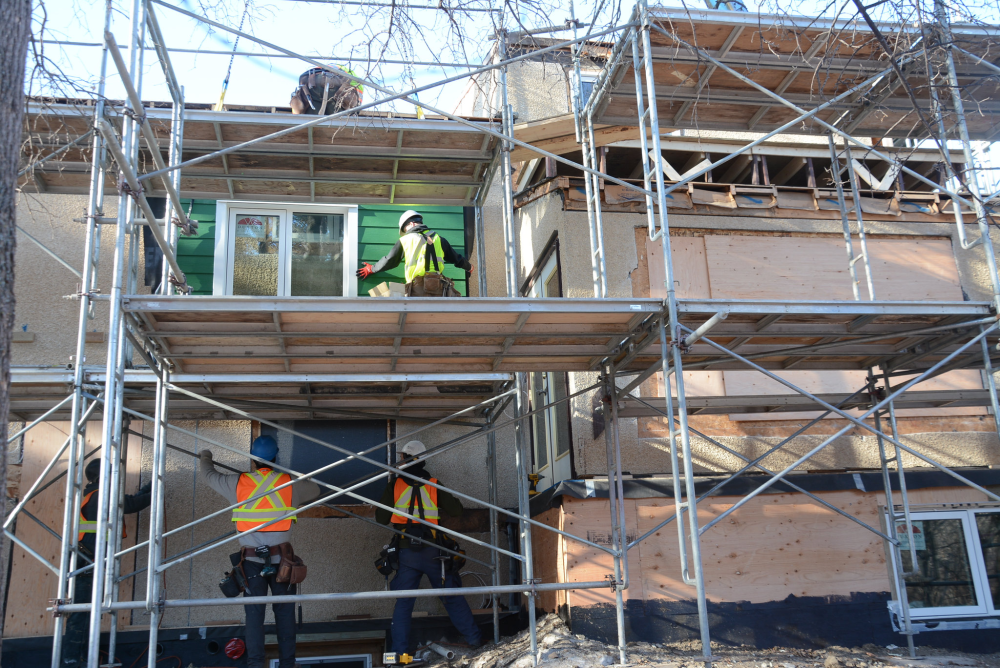OTTAWA — The Pembina Institute made the following statement in response to the federal government’s 2021 budget:
“To get pathways to net-zero right, it’s essential Canada put people first. Today’s announcement recognizes this imperative, and we look forward to seeing increased commitment from governments to train workers — particularly those in incumbent industries in the energy sector — for the skills that will be increasingly in demand in a low-carbon global economy.”
— Linda Coady, executive director, the Pembina Institute
On pathways to net-zero
“Today’s announcement takes steps in the right direction where it invests in zero-carbon technology. Next, the federal government needs to provide more details around the net-zero accelerator fund, which now totals $8 billion after today’s $5 billion announcement — specifically whether it will deliver emissions reductions needed for existing, let alone more ambitious, near-term targets. Funding to decarbonize industry must be applied to the deepest and most impactful emissions reduction opportunities that deliver transformative change for a decarbonized global economy. Public funding to decarbonize the industrial sector must be accompanied with requirements for corporate-level commitments to net-zero supported by robust net-zero plans that prioritize direct emissions reductions ahead of removals and offsets.”
— Isabelle Turcotte, federal policy director, the Pembina Institute
On carbon capture, utilization and storage
“Public investments in carbon capture, utilization and storage must be weighed against other opportunities to drive emissions reductions in Canada on a tonne per dollar invested basis. Preference for public funding should be given to opportunities more likely to result in full decarbonization of Canada’s economy by 2050 in a manner that is consistent with limiting warming to 1.5 degrees Celsius while generating significant economic opportunity and jobs per dollar invested for workers and communities. An increasing carbon price and the forthcoming clean fuel standard should now provide an adequate price signal for investment in already demonstrated forms of carbon removal. Any public funding to decarbonize the industrial sector must come with strings attached, including corporate-level commitments to net-zero supported by robust net-zero plans that prioritize direct emissions reductions ahead of offsets. The announced 90-day consultation process into the design of the CCUS investment tax credit is key to ensuring these important guardrails are in place to ensure investments are in the public interest.”
— Chris Severson-Baker, Alberta director, the Pembina Institute
On zero-emission vehicles
“On top of previous significant federal government funding for zero-emission vehicles, infrastructure and production, we were hoping this budget announcement would include funding to catalyze a much-needed industry shift toward near-zero and zero-emission commercial vehicles. In order to future-proof Canada’s automotive and clean tech industry, we see the importance for skills training that will support this new ZEV transportation and energy system.”
— Carolyn Kim, transportation director, the Pembina Institute
On deep retrofits for homes
“With an investment of $4.4 billion for zero-interest loans for home retrofits, Canada has an opportunity to create about 10,000 well-paying jobs in the retrofit sector over the next five years. These will help reduce carbon pollution from buildings, protect the health of residents, and keep energy bills low. While significant, this investment unfortunately is unlikely to get us to our destination: Canadians will need to spend $13 billion per year every year between now and 2040 to eliminate carbon pollution from our residential buildings while creating 127,000 lasting jobs. This budget, while a step in the right direction, still falls short in delivering on this climate and job creation opportunity.”
— Tom-Pierre Frappé-Sénéclauze, buildings and urban solutions director, the Pembina Institute
Contact
Sarah MacWhirter
Director, Communications, Pembina Institute
416-389-7465
Background
Report: How to Get Net-Zero Right
Issue Paper: Does Canada’s Net-Zero Math Add Up?
Letter: Areas for investment in Canada’s economic recovery: Letter to federal minister of finance
Report: Green Budget Coalition Recommendations for Recovery and Budget Actions
Report: Investing for Tomorrow, Today: How Canada’s Budget 2021 can enable critical climate action and a green recovery
About the Pembina Institute
The Pembina Institute is a non-profit think-tank that advocates for strong, effective policies to support Canada’s clean energy transition. We have offices in Vancouver, Calgary, Edmonton, Ottawa and Toronto. Learn more: www.pembina.org




